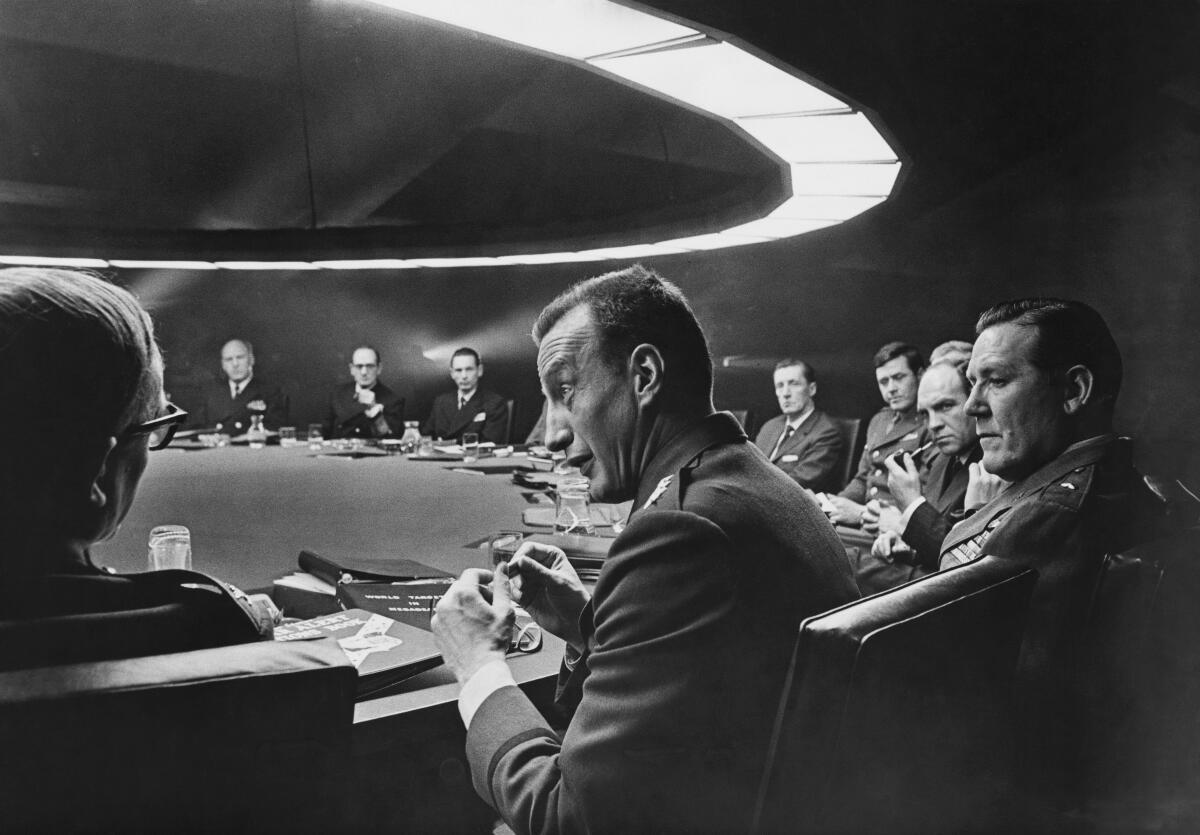Letters to the Editor: On ‘Dr. Strangelove,’ ‘1984’ and other works that should unsettle Americans

- Share via
To the editor: I enjoyed reading Michael Hiltzik’s perspective about the continuing relevance (and wonderful hilarity) of Stanley Kubrick’s “Dr. Strangelove,” and its prescient depiction of some American psychoses. I thought the piece was “doubleplusgood.”
This phrase is “newspeak” from a similar iconic work that appeared 15 years before Kubrick’s film: George Orwell’s “1984.”
The omnipresent telescreens in the book prefigure the security cameras and facial recognition technology that grow increasingly common today. Privacy is virtually impossible in “1984,” and today, our privacy is steadily eroded by behemoth corporations with access to mountains of our personal information.
The signature emotion of the ruling party in “1984” is hate. Today, hate and its consequence, violence, are stoked by public figures seeking to maximize their profiles.
Most ominously, in “1984,” whatever the party says must be true. In our country, we now find that an election is devoutly believed by millions to have been stolen, all legitimate evidence to the contrary, since the Big Brother of the moment tells his followers that is so.
Orwell intended his book as a warning against Russian-style totalitarianism, but it’s proved to be a bleak prophecy about American democracy, and the dark shadows of human nature within.
David Chambers, Sherman Oaks
..
To the editor: Hiltzik reminded us that there is value in history when he wrote about the relevance of “Dr. Strangelove” to today.
Readers should also watch the 1961 masterpiece “Judgment at Nuremberg” to see that we are at a major crossroads today, one that many have faced before. We will see in less than a year if we can learn from history.
David Lappen, Santa Monica




